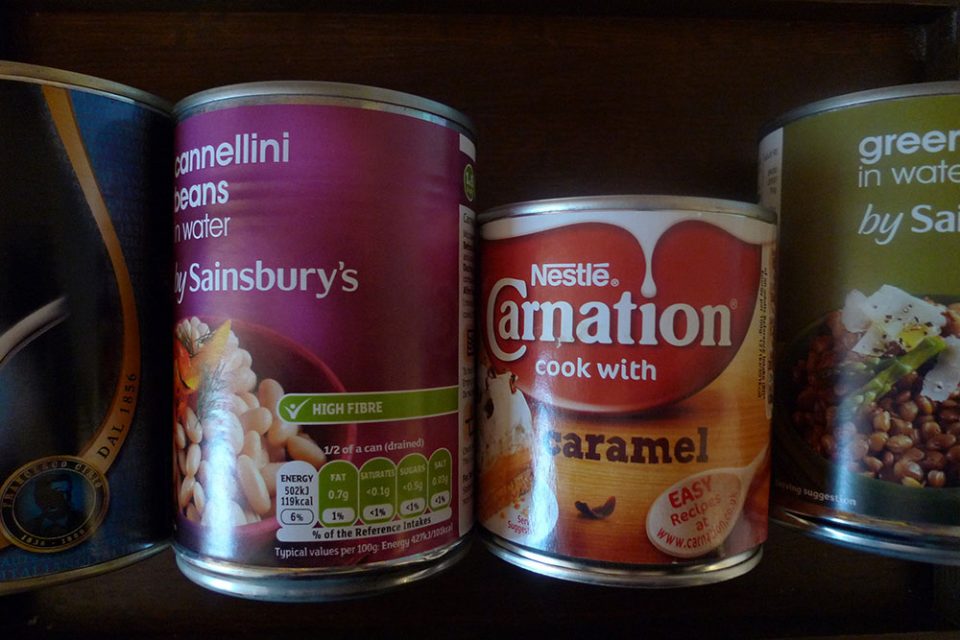Approach food with sense. We need a bit of everything: protein, fat, carbohydrates, vitamins and minerals. One of the best way of getting them all in the right proportions is to eat a varied and balanced diet. Which means what, exactly? Not eating the same thing every day and only having things that have no obvious nutritional value most of the time.
Protein doesn’t mean meat. There are lots of substitutes: tofu, eggs, beans and nuts are all easy to get hold of. Nuts also contains fats and minerals that are good for us, and beans and other pulses are full of intestine-friendly fibre. Remember to eat fruit and vegetables in all the colours of the rainbow: white potatoes, onions and parsnips; green beans, peppers, spinach, broccoli and courgette; red tomatoes, peppers, apples and raspberries; orange carrots, oranges and peppers; purple aubergine and beetroot. Keep grains brown (that is, wholegrain) where you can, and eat the skins of potatoes.
If your diet includes good amounts of vegetables, raw and cooked, some bread and other grain-based foods like rice and pasta, nuts and pulses, and some dairy, you’re fine. Everything you need is there. Avoid set diets: many are not scientific and some will do more harm than good. Nutrition is both very complicated and very simple. Eggs and butter might be considered good one decade and bad the next, but the overall guidelines haven’t changed in the last five – don’t eat too much of anything.
To quote Michael Pollan:
Eat Food. Not too much. Mostly plants.

0 comments on “A Note on Nutrition”Add yours →